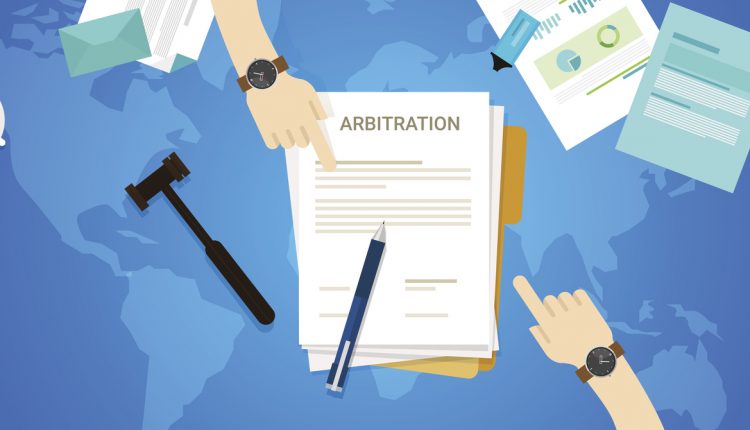ADR is still a work in progress; some legal experts prefer the traditional method of litigation. The benefits of mediation are well known. Education remains the key to promotion of arbitration in Australia. We speak with John Wakefield on the matter.
You have a wide area of expertise, can you share which is the most challenging in terms of commercial litigation? Which area do you believe benefits the most from ADR?
Litigation is ultimately about people, whether in their private capacities, or as officers of corporations or trustees. It is usually concerned with monetary compensation which might be inadequate to resolve the emotional issues of the individuals involved. This is likely the case in areas like estate administration but can apply equally to other commercial disputes. ADR, at least in the form of mediation, gives the individuals some opportunity to resolve emotional issues either by the process itself or the terms of the settlement agreement. It is flexible and can be more creative about the way in which a dispute might be settled other than by the payment of money or the type of relief available in the courts. All litigation is challenging given the dynamics introduced to the process by the motivations and/or interests of the parties, the complexity of the legal issues involved, the lawyers and even court procedure. ADR generally offers the opportunity to parties to take more control over the process and appropriately handled to achieve savings in time and costs. It also offers privacy.
Some professionals do not promote the idea of mediation and arbitration, as they stand true to believing litigation is the best method for specific disputes; what is your opinion on this?
Mediation has been well known as a form of ADR since the 1980s. The market for mediation in Australia is mature. I would be very surprised if any legal professional was not aware of the availability of mediation and its benefits. In some areas of the law it is compulsory and clients expect it.
The same cannot be said for arbitration. Until quite recently it was not taught at undergraduate level in law schools and I do not think it is well understood more generally in the profession. Like the court process, arbitration results in a decision which is imposed and which is enforceable. However, in arbitration the parties have more control over the process. It is private and the opportunity to review an award is more restricted than rights of appeal in litigation. In international arbitration enforcement of awards is facilitated by the New York Convention in more jurisdictions and more easily than enforcement of court judgments internationally. One criticism of arbitration is that the perceived benefits of the saving of time and cost are illusory. This is likely to be the case if arbitration is conducted in the same way as commercial litigation. Significant expenses occur in areas like discovery, preparation of witness statements and cross examination at hearing. Properly managed arbitration allows the parties to adopt procedure more suited to the resolution of their dispute. This can include limiting or dispensing with some aspects of procedure at a saving of costs when compared with the litigation process. Local lawyers should be encouraged to understand, become experienced in, and encourage their clients to adopt such procedures in arbitration to reap real benefits in costs, and time saving.
Unlike the position in most civil law and many other common law jurisdictions, the arbitration culture in Australia is far from mature. With amendments to the International Arbitration Act 1974 (Cth) and the introduction of the uniform Commercial Arbitration Acts domestically there is an up to date and effective structure promoting best practice for the conduct of international and domestic commercial arbitration in Australia. Arbitration has the strong support of the judiciary. Ultimately however the key to building up an arbitration culture internationally and domestically lies in education of users both legal professionals and their clients as to the points of difference between litigation and arbitration and the benefits of arbitration and how realistically to achieve them. The law schools and professional bodies have an important role to play in this process.
John Wakefield
Chairman of Partners | Sydney Office
+61 2 9390 8302
john.wakefield@holmanwebb.com.au
John Wakefield is the Chair of Holman Webb Lawyers a mid-tier firm with offices in Sydney, Brisbane, Melbourne and Adelaide. He practises in dispute resolution including international and domestic arbitration. John is the Australasian Trustee of the Chartered Institute of Arbitrators and a past President of the Australian branch. He is Chair of the Australian Disputes Centre which provides mediation training to the National Mediation Accreditation Standard and accommodation for private dispute resolution including arbitration and mediation in Sydney. John regularly speaks on issues involving alternative dispute resolution.
Holman Webb is a commercial and insurance law firm with over 60 years experience and the scale to provide a top-tier level of legal services.





I really appreciated your information that litigation is ultimately about people and will thus involve emotions. With this in mind, I think that you should always hire a lawyer that understands how to empathize with people. In my mind, this would allow them to resolve disputes more quickly and easily.
Thanks for letting me know that ADR is about litigation concerning unmet compensation request for the individual involved. Thanks for explaining it’s concept and processes. If ever that I will encounter such compensation dispute in the future, I will definitely hire a lawyer to guide me through the entire legal process.
Thanks for your information on arbitration. I think my brother would like to know more about what lawyers can do for him. He is trying to get compensation for a workplace injury.